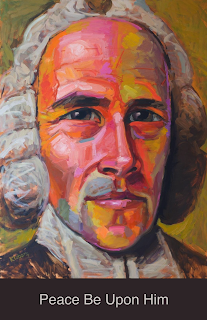When the 2015 Rethinking Hell conference was nearing a close, I decided I would rather go home earlier than planned. I jogged back to my hotel, checked out early, and started looking for a ride to LAX airport for that afternoon to change my flight and spend Father's Day with my family. I managed to procure a a vehicle with none other than plenary speaker Oliver Crisp who was taking Robin Parry to the airport after the roundtable.
 Although I wasn't able to change my flight ($$$) the drive was one that I doubt I will ever forget. It was an absolute pleasure to sit with two Brits and hear them discuss several topics of interest and chimed in when it wouldn't diminish the conversation. We did, of course, discuss the subject of the conference as well as how incredibly well it went. Being with a Traditionalist and a Universalist, and having primarily studied Conditionalism in my rethinking of hell, I was able to offer reflections and clarifications from this perspective.
Although I wasn't able to change my flight ($$$) the drive was one that I doubt I will ever forget. It was an absolute pleasure to sit with two Brits and hear them discuss several topics of interest and chimed in when it wouldn't diminish the conversation. We did, of course, discuss the subject of the conference as well as how incredibly well it went. Being with a Traditionalist and a Universalist, and having primarily studied Conditionalism in my rethinking of hell, I was able to offer reflections and clarifications from this perspective.
Oliver Crisp, as a speaker and roundtable presence, was a highlight of the conference for me. His sense of humour and demeanour about himself and his interests may have been slightly lost on some American hearers, but for this Canadian it was pure gold. His constant refrain of, "Peace be upon him" after every utterance of Jonathan Edwards' name was my personal favourite. When they introduced him with the biographical note about painting pictures of Edwards as a favoured recreational activity, I leaned over to Chris Date and whispered, "I guess it's pretty clear which camp he's in."
Here is what Traditionalist Oliver Crisp had to say (according to my notes):
Here is what Traditionalist Oliver Crisp had to say (according to my notes):
Christian Particularism - A particular number of humanity will be saved. God holds the total redemption of a particular number of human beings. It could be a remnant of people or it could be all people. Usually it entails less than all persons, but it could be all.
There are two versions:
Hopeful Universalism (Balthasar and Barth)- This is not really universalism, because it doesn’t affirm all will be saved or deny that it’s true either. It hopes, but doesn’t know.
Optimistic Particularism (made up by Oliver) - Someone hopeful about the scope of salvation, but believes God will eventually damn some to exclusion.
Difference: The hopeful person says: I don’t know, but I hope and pray God will save everyone and have sufficient reason to think so. The Optimistic person says: I know the reasons are sufficient in principle, but think that God won’t on the basis of scripture.
The concern in this paper is not the mechanism of how fallen human beings are saved by the work of Jesus Christ, but how man fallen human beings are saved by Jesus Christ. The number of the saved could be incredibly large based on God’s grace through near death experience moments, those who die under the age of accountability, etc.
Should a Christian Particularist be a Hopeful Universalist or an Optimistic Particularist?
Four Objections to Hopeful Universalism:
1. Why hold the historic majority view? Ecclesial authority is not as valued by protestants, but it is valuable regardless. Most Christians through history have not thought universalism is the truth of scripture. Has God allowed people to be wrong for so long?
2. Why not just adopt universalism? As a reformed theologian, why not jump in? If God desires it and is able to, why not?God desires to have love and justice, but what if God has a reason that is veiled or hidden from us? Divine hiddenness is what we find biblically.Job is a sort of divine test where he has no idea what is going on and God comes at the end and still doesn’t give an answer.
3. Optimistic Particularism is more faithful to the Bible over Hopeful Universalism.
4. Conditionalism is consistent with Christian Particularism, but Crisp is not convinced it is a better or more optimal way to explain it.
It’s not clear that the scope of salvation is an issue over which we should divide.

No comments:
Post a Comment